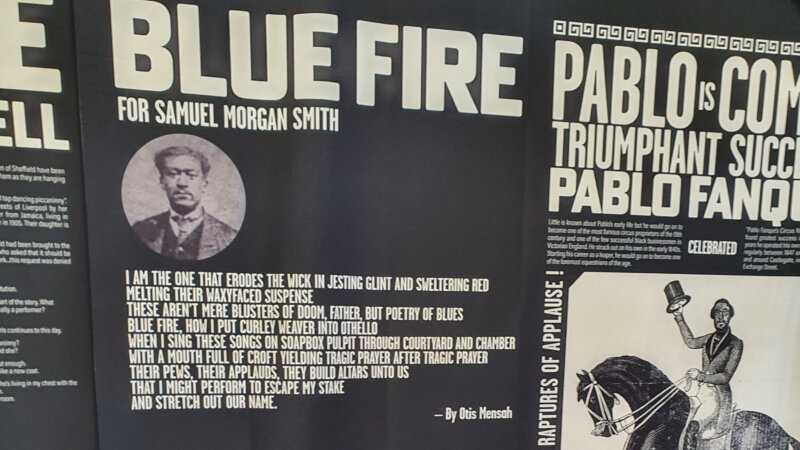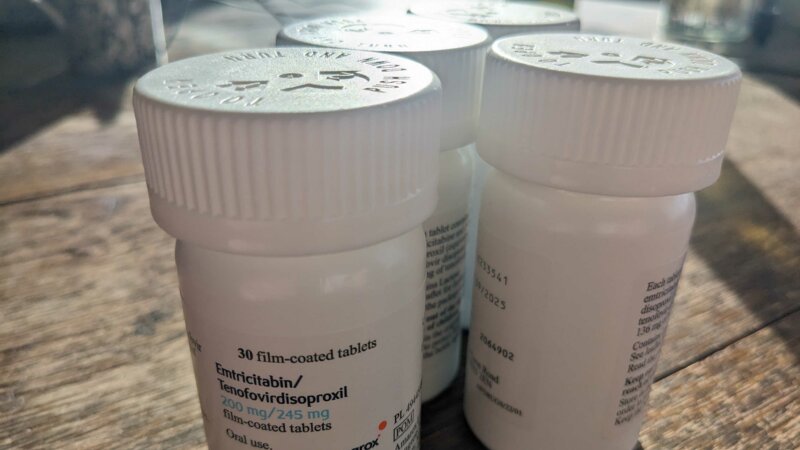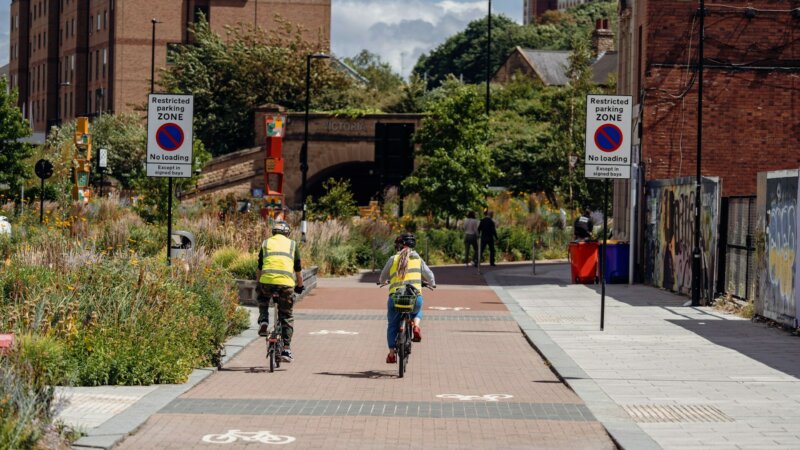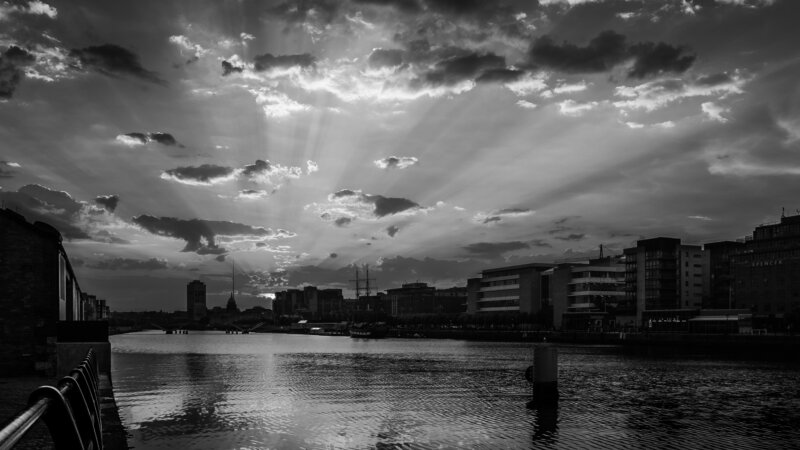Dig Where You Stand: Thomas Pompey
Désirée Reynolds has been the Writer In Residence at the Sheffield Archives for six months. Using a style combining archival material, documentary prose and fiction, Désirée weaves together her creative responses to what she has found. She continues her serialisation of ‘Dig Where You Stand’.
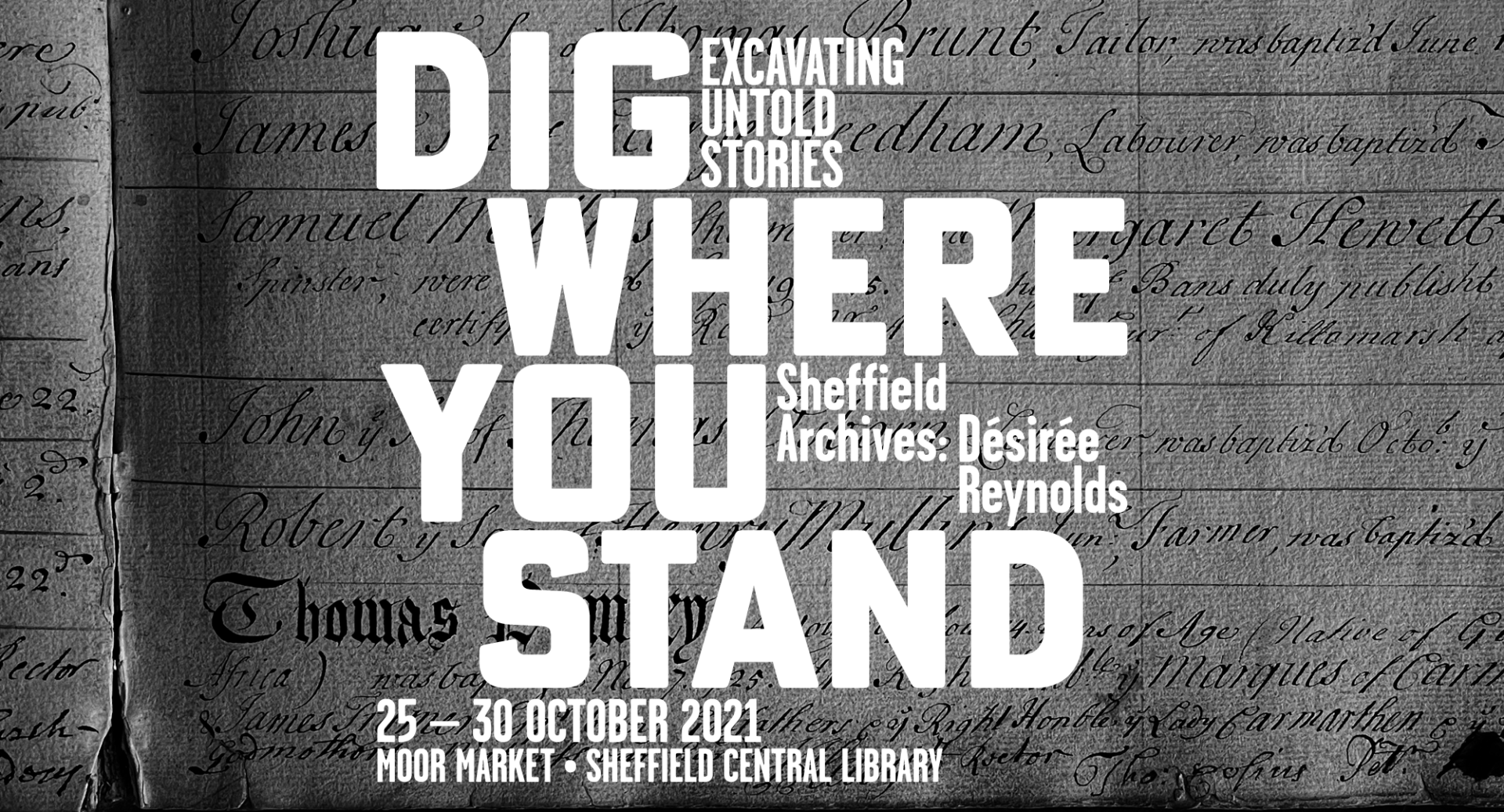
And then I found Thomas Pompey.
Rebehold. To see again and again. An entry in a book, that at the time it was written, the Transatlantic trade in human beings had already been making money for over a hundred years. Look at the writing, look at the sway and swell of the lettering. I invite you to look for yourselves, take in these faded brown words on this, fading yellow paper. Did Thomas view his name being scratched into history and wonder what they were doing? Again, more questions. Why was he here? Decoration? Was he here to pose under a white woman’s flower basket? Would she be playing milk maid to his loving helper? A show of wealth? A prize? This needs more. The boy, who I see, because he’s more than lettering on a page to me, is curious and cautious. He made that journey on a ship in 1725. From Guinea to Rotherham. Age 14. He is baptised in a church, seemingly dedicated to upholding and celebrating this massive land-owning family. Their workers are baptised too.
“William Bull, son of William Bull, Head Groom of stables. Baptised 14th March 1725”.
“Juliana, daughter of H.N Kentisbear, (Gentlemen to the R.H Marquee Carmarthen. Baptised 9th March 1726”.
Thomas? I wonder if he ever met them. That they could pass each other in the hallways, or be fed in the kitchen.

Look at it again. The name of the scripter and a massive ink blot at the end, so keen was the writer that he had loaded his goose feather pen too much. The splodge is careless. It’s a mistake that can’t be erased, unlike Thomas, who seems to not even be a memory. Why did they baptise him? Perhaps they sought to ‘civilise him’, and of course religion was the way of doing that. But perhaps their use of their religion was a way to trick themselves into believing that he didn’t have one - or a home, a family, a loss.
I know so very little, not even a silent picture is left, not a nervous little face or confused expression. And already he is two or three times removed from me. Thomas cannot be his real name. Who are those adults surrounding him in a small church in Rotherham, as he is made anew for them? What is this heavy-handed hand - the writer that has put him here - simultaneously obscuring and revealing about him? The writer would have no idea of his legacy. It will not be him, but it is now certainly Thomas. Thomas is why I’m doing this. I will go to where he tread. I will look at the landscapes he did, knowing I won’t find him there but at least comforted that I can remove one layer.
The archivists and I ponder. Look at the entry. Look at the ink? How is Thomas privy to so much of it? A family with this much wealth and with this much property could’ve taken him anywhere between London or Yorkshire or Europe. From Guinea to Rotherham. How long was he here before he was baptised? Did he leave or did they abandon him? Did he ever get back home? Did he become too old to remember where home was? What happened to these children used as ornaments? There’s a book in this.
I dream of him, in the day when the lines are blurrier and I can’t remember his face. Only that his eyes must be constantly looking for something he recognises.
Was there snow on the ground? As you walked to the church with all of them? Did you look at the grey sky and think about home? Was your breath floating around you like the smoke from a cooking fire as you walked in? Did you have to shake hands with the people that thought that being with them was better than being you? Erasure being better than blackness. The water must’ve been cold as they touched your forehead with it? Did the white people smile at you as they robbed you of your ancestry?
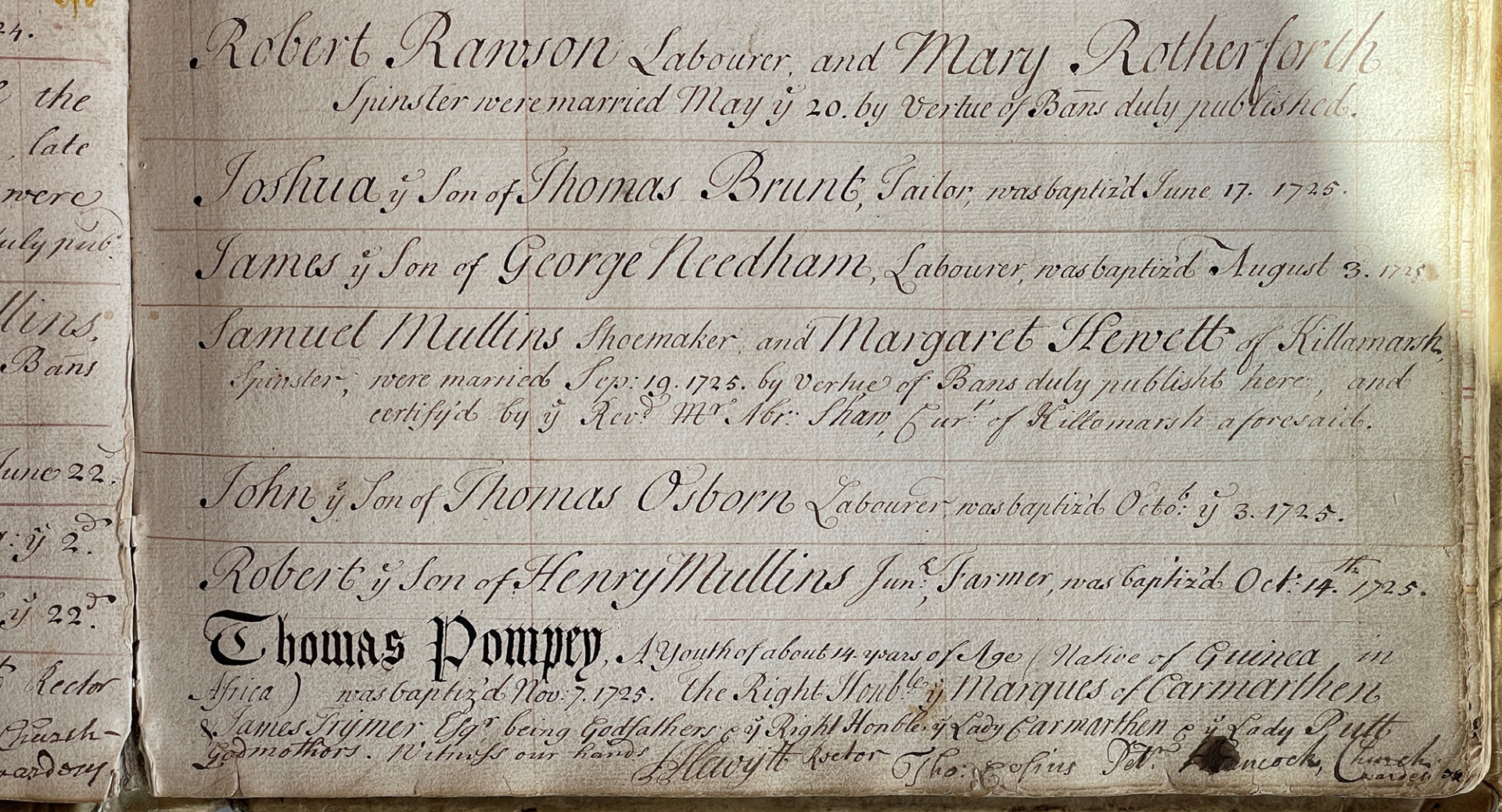
Thomas Pompey Baptism Record
Sheffield ArchivesThe thread of my coat pulls and goes around me. It unravels as do I. I post.
More stuff from the archives...In the parish Baptism Registers for Harthill, Rotherham, here is Thomas Pompey.
“A youth of about 14 years of age, (native of Guinea in Africa) was bapt’zed November 7 1725, The Right Honourable Marques of Carmarthen (and) James Frymer Esq being Godfathers, Right Honourable Lady Carmarthen (and) Lady Pitt Godmothers...”
So many questions. How did he get here, where did he live, what was his life like, where did he move to, did he live out his life here? What happened to Thomas?
About 14? Knowing adultification bias could he be younger?
Often Black people were baptised to save them from slavers. (I don’t know that it helped, but having important/rich godparents would)
Look at the way his name is in bold.
#whogetstheink #blackbritishhistory #localhistory #writerinresidence #criticalfabulation
#archive #history #rotherham #sheffield #wewerealwayshere
16th June
“Sit by me, Thomas”.
“Yes, Miss”.
“Now, how do you feel, now that you are baptised”.
“I feel the same as I felt before. I don’t know. What am I supposed to feel?”
“Come, saved boy, you’re supposed to feel saved”.
“Saved? From what?”
“Well, ahhh bless you, saved from sin and slavers”.
“Are they the same?”
Dig Where You Stand will be a city centre exhibition in various locations, with hubs in the Moor Market, Theatre Deli and Sheffield Central Library 25th-30th October. Now Then is serialising the project with writing by Désirée Reynolds and poems by Otis Mensah over the rest of the month. Design by Jamie @ Peter and Paul.



